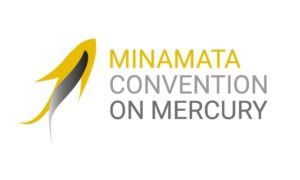Newsletter 09 Oct 2023
Environment: What’s Up in GENeva | 9 – 15 October 2023

The Geneva Environment Network’s weekly newsletter includes the latest information on the global environmental agenda, main events, job vacancies, learning opportunities, as well as other useful resources and updates. Stay tuned and follow us also on Twitter, Facebook, LinkedIn, and Youtube, or visit our website regularly for additional updates.
Image of the week | Throwback to the morning of Saturday, 19 January 2013, 7 a.m., at the International Conference Center of Geneva, where delegates successfully completed the negotiation of a new global treaty on mercury — the “Minamata Convention on Mercury” — with Japan welcoming it as a tool to avoid mercury pollution and Minamata disease in the future, and reporting on preparations to host the diplomatic conference on 10-11 October 2013 at Kumamoto City, where the Convention was adopted 10 years ago.
Minamata Convention Turns 10 and Launches COP-5 Online Events
The Minamata Convention on Mercury celebrates an important milestone this week and launches a series of over 20 Online Events, as part of its fifth meeting of the Conference of the Parties (COP-5), which will kick off at the end of this month in Geneva. → Visit our dedicated webpage Towards Minamata Convention COP-5.
Agreed upon 10 years ago at the fifth session of the Intergovernmental Negotiating Committee on mercury which took place in Geneva in January 2013, the Minamata Convention was adopted at a diplomatic conference held in Kumamoto, Japan, on 10 October 2013. The Convention finally entered into force in August 2017, and currently counts 147 parties committed to making mercury history. At the end of this month, Member States will meet in Geneva to “redouble” their efforts to protect human health and the environment from mercury pollution and help attain a pollution-free planet. Various activities have been planned to celebrate the 10th anniversary of the Convention, including this week a press conference and the release of a video, on Tuesday, 10 October.
This week, the Minamata COP-5 Online Events will offer Parties and observers an opportunity to share information and bring knowledge to advances in technology, research, and policy to the attention of Parties and to the global community that the Convention serves. The Geneva Environment Network is co-convening three of these Online Events:
- Science-Policy Panel on Chemicals, Waste and Pollution Prevention: Building the Linkages from Science to Action | Road to OEWG 2 Series | This event is part of the Science-Policy Panel to Contribute Further to the Sound Management of Chemicals and Waste and to Prevent Pollution Event Series aiming to build bridges and promote collaboration and knowledge sharing between and among stakeholders, and to raise public awareness about the OEWG preparing proposals for the establishment of the panel. It aims to elicit views from stakeholders to learn from their experience within and beyond the mercury and health communities. → Register to participate on Webex on 9 October 2023 from 13:00 – 14:00 CEST
- Catalyzing Project Impact and Visibility Through Knowledge-Driven Capacity-Building | Projects play a vital role in implementing Multilateral Environmental Agreements (MEAs) at the national level, offering valuable capacity-building and technical assistance to developing countries. Knowledge management systems not only enable tracking the progress of projects but also facilitate understanding their positive impacts and identifying successful practices that can be replicated in different contexts. This online event will explore current and future avenues where technology can enhance collaboration, foster growth, and facilitate improved communication about on-the-ground developments. → Register to participate on Webex on 10 October 2023, from 14:45 to 15:45 CEST.
- Advancing a Rights-based Approach to Addressing Mercury Contamination | This event, drawing upon the voices of the UN Special Rapporteur on toxics and human rights, key UN partners, and activists, will explore recent developments on the interconnectedness between human rights, occupational safety and health, a just transition, and the environment. The event will also identify key entry points to strengthen a human rights-based approach to the implementation of the Minamata Convention on Mercury, share specific examples of rights-based environmental action targeting emissions and releases of mercury, and highlight how States can take more effective action through compliance with their obligations to respect, protect and fulfill human rights to meet their commitment and obligations under the Minamata Convention on Mercury. Register to attend on Webex on 11 October 2023, from 16:30 to 17:30 CEST.
Towards the Plastics Treaty | From Geneva to Nairobi
Ahead of the third session of the Intergovernmental Negotiating Committee to develop an international legally binding instrument on plastic pollution, including in the marine environment (INC-3) — to take place from 13 to 19 November 2023, in Nairobi, Kenya — a briefing organized in the framework of the Geneva Beat Plastic Pollution Dialogues will provide updates on preparations and inform on stakeholder perspectives. While building on the zero draft text of the instrument developed by the Chair of the process, H.E. Amb. Gustavo Meza-Cuadra, with the support of the secretariat, this session will also highlight and make connections with efforts by International Geneva’s actors that have contributed to raising momentum during the intersessional period. These include the recently adopted New Global Framework on Chemicals for a Planet Free of Harm from Chemicals and Waste, the International Labour Organization’s recent report on Hazardous exposures to plastics in the world of work, and the launch of the World Health Organization’s dialogue series on health and plastics in the run-up to INC-3. → Register to attend the event in person or online on Thursday 12 October 2023 from 14:00 to 15:30 CEST.
Other relevant news and upcoming events on the plastics treaty include:
- Corporate interests and the UN treaty on plastic pollution: neglecting lessons from the WHO Framework Convention on Tobacco Control | Rob Ralston, Giulia Carlini, Paula Johns et al. | The Lancet | 4 October 2023 | Beyond the conflicts with the petrochemical industry, there are comparable tensions between treaty objectives and consumer goods companies that rely on single-use plastics for packaging. In seeking to address these concerns, the WHO Framework Convention on Tobacco Control is cited as a model for minimizing or preventing the exercising of disproportionate political influence by the plastic industry.
- INC Secretariat Webinar 7: Bridging the gap towards safe and sustainable management of plastic waste | This session will explore what environmentally sound management (ESM) of plastic waste entails, including in terms of infrastructure investment and access to technology, and opportunities to mobilize resources towards enhancing the capacity to manage waste effectively. Socio-economic and human health dimensions of sustainable waste management, including the protection of waste workers’ health, will also be addressed. → Register to attend on Zoom on 10 October 2023 from 15:00 to 16:30 CEST.
- Global Plastics Summit | Working towards a robust UN plastics treaty | Economist Impact, with the support of the Nippon Foundation, the Minderoo Foundation, and the Pew Charitable Trusts is hosting a gathering of stakeholders before INC-3 to work towards the creation of a robust UN plastics treaty, on 11-12 October 2023 in Bangkok, Thailand.
Perspectives on Solar Radiation Modification Governance
Increased and urgent action to reduce greenhouse gas emissions, phase out fossil fuels, and invest in adapting to the impacts of climate change remains an immutable goal to tackle the climate crisis. However, current efforts remain insufficient. Scientists and policymakers acknowledge that even drastic emission reductions over the next years will not be sufficient to limit temperature rise and meet the 1.5–2°C goal of the Paris Agreement. No pathway envisioned by the Intergovernmental Panel on Climate Change (IPCC) could limit global warming under 1.5°C through emissions reduction alone. Technologies that can artificially cool the planet, such as Solar Radiation Modification (SRM), are increasingly seen as tools to counter the negative effects of the climate crisis, as they have potential to offset warming and ameliorate some climate hazards. However, large uncertainties and knowledge gaps are associated with the potential of SRM approaches to reduce climate change risks.
Within this ongoing discussion, a special event on Perspectives on Solar Radiation Modification Governance, organized by Switzerland within the framework of the Geneva Environment Network, ahead of the sixth session of the UN Environment Assembly (UNEA-6), will take stock of recent UN publications referring to SRM and bring together stakeholders from different fields to provide their perspectives on solar radiation modification governance.→ Register to participate in person at the International Environment House 2, or online on Webex on 12 October 2023 from 10:00 to 12:00 CEST.
Join Global Leaders and Changemakers at IUCN Leaders Forum 2023
The second edition of the IUCN Leaders Forum will take place at the International Conference Center of Geneva (CICG) and virtually from 11 to 13 October 2023, under the theme Global goals for nature: Tracking progress, financing success. The Forum will build extensively on the global goals to protect and restore nature, agreed to at the 2022 UN Biodiversity Conference (COP15) in Montreal, Canada, and will gather leaders and changemakers to discuss shared pathways to achieving these goals and helping mobilize relevant groups into action. In addition, the IUCN Leaders Forum 2023 will offer a timely platform to agree on global measuring, monitoring, and reporting mechanisms. It will also provide the opportunity to tackle critical questions around financing the global goals, with a view to helping governments and the private sector fulfill their obligations. Various actors from International Geneva will contribute to the dense program of the 2023 IUCN Leaders Forum intervening during its various sessions, events, and dialogues that will allow participants to advance their skills and empower impactful change in nature conservation and sustainability. → Visit the dedicated webpage for in-person and online registration modalities.
Road to COP28 | Need to Accelerate Climate Action
With the First Global Stocktake since the 2015 Paris Agreement to conclude at the 28th meeting of the Conference of the Parties to the UN Framework Convention on Climate Change (UNFCCC COP28) at the end of this year, all eyes are on the advancements of climate-related mechanisms and climate-related headlines. Recent updates include:
- September 2023 was the hottest month of September on record, with an average surface temperature of 16.38°C. This was 0.5°C above the temperature of the previous warmest September, in 2020, and around 1.75°C warmer for the month of September compared to the pre-industrial reference 1850-1900 period, according to the EU’s Copernicus Climate Change Service (C3S) implemented by the European Center for Medium Range Weather Forecasts. Visible effects of the continued high temperatures of this year are being recorded on high peaks, with the France side of the Mont Blanc found to have shrunk by more than two metres in two years and Swiss glaciers melting beyond scale.
- UNICEF’s ‘Children displaced in a changing climate: Preparing for a future already underway’ offers the first statistics of children displaced by weather-related events: 43.1 million internal displacements of children linked to weather-related disasters over a six-year period – the equivalent to approximately 20,000 child displacements per day. Almost all – 95 percent – of recorded child displacements were driven by floods and storms.
- The High-level Pledging Conference for the Green Climate Fund’s second replenishment (GCF-2) held on 5 October in Bonn, Germany, managed to secure $9.3 billion for the United Nations’ main fund for helping vulnerable countries cope with climate change, but still fell short of a $10 billion target. According to the Synthesis report by the UNFCCC secretariat on elements for the considerations of the first global stocktake, the sum necessary to support developing countries in adaptation and loss and damage amount respectively to US$200-250 billion and to US$ 200-400 billion.
- Pope Francis’ new apostolic exhortation, titled Laudate Deum (“Praise God”), a “second part” of His 2015 encyclical Laudato Si’, defines climate change as a “global social issue” to which “our responses have not been adequate” so far. In sharing His hopes for the upcoming COP28, the Pope describes the favorable process that fosters the energy transition as one that is “drastic, intense, and counts on the commitment of all”.
- In a recent interview, Maria Neira — Director of the Department of Environment, Climate Change and Health of the World Health Organization — shared the conviction that implementing the Paris Agreement “could be — it should be — the public health treaty we are all dreaming of”, bringing positive effects on pollution reduction, more sustainable food production, and fewer chronic and non-communicable diseases.
Environment @ Human Rights Council
The 54th session of the Human Rights Council (HRC54) will be concluding its five-week session this week. Various environment-related resolutions are expected to be deliberated upon, including a Working Group on the rights of peasants and other people working in rural areas (L.11), the extension of the mandate of the UN Special Rapporteur on toxics and human rights (L.13), the rights of Indigenous Peoples (L.19), the right to development (L.27), the right to education of all girls in relation to climate change (L.37). → Overview of key environmental issues at HRC54, side events, summaries, highlights, and further resources are available on our HRC54 and the environment-dedicated webpage.
In the margins of the Council, a special event will celebrate the Second Anniversary of the Recognition of the Human Right to a Clean, Healthy and Sustainable Environment by the Human Rights Council and the UN Human Rights Prize 2023 awarded to the Global Coalition of Civil Society, Indigenous Peoples, Social Movements, and Local Communities for the Universal Recognition of the Human Right to a Clean, Healthy, and Sustainable Environment (for additional information, contact Francesca Mingrone of CIEL at fmingrone@ciel.org):
- 8 October 2023 marks two years since the recognition of the human right to a clean, healthy and sustainable environment at the 48th session of the Human Rights Council. This laid the foundation for the recognition of this right by the United Nations General Assembly, on 28 July 2022, which was made possible by joint efforts by civil society, Indigenous Peoples organizations, social movements, local communities, and the leadership of several countries spearheaded by the Human Rights Council’s core group on human rights and the environment, comprising Costa Rica, the Maldives, Morocco, Slovenia, and Switzerland.
- In July 2023, the United Nations designated the Global Coalition of Civil Society, Indigenous Peoples, Social Movements, and Local Communities for the Universal Recognition of the Human Right to a Clean, Healthy, and Sustainable Environment as one of the five recipients of the 2023 UN Prize in the Field of Human Rights.
Happening Abroad
- 19th meeting of the POPs Review Committee of the Stockholm Convention | From 9 to 13 October 2023 in Rome, Italy, back-to-back with the nineteenth meeting of the Chemical Review Committee of the Rotterdam Convention, the Committee will consider, among others, draft risk profiles and management evaluations for various chemicals; draft document on long-range environmental transport and indicative lists.
- 2nd Stakeholders Consultation Meeting (SCM) in preparation for the 10th World Water Forum | Hosted by the Indonesian government and the World Water Council on 12 and 13 October 2023, in Bali, Republic of Indonesia. It will be the place for the stakeholders participating in the political, thematic, and regional processes to bring interim results of discussion of each working group and plan for the forum week and beyond with a developed agenda. → Revisit the outcomes of the briefing held in preparation for the SCM and co-organized by the Permanent Missions of the Republic of Indonesia and the Arab Republic of Egypt to the UN in Geneva, and the Geneva Environment Network.
What (Else) to Read Next?
- Historic Global Framework on Chemicals Adopted Following Years of Talks | IISD SDG Knowledge Hub | 4 October 2023
Based on around 28 targets, the new Framework outlines a roadmap for countries and stakeholders to collaboratively address the lifecycle of chemicals, including products and waste. The negotiating process was unique in that representatives from governments, the private sector, non-governmental and intergovernmental organizations, youth, and academia participated at the same level.
Events
See all
Body Meeting
54th regular session of the Human Rights Council | HRC54
11 Sep – 13 Oct 2023
Palais des Nations
HRC
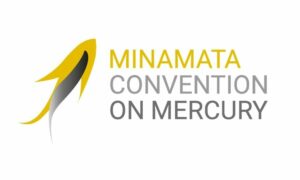

Body Meeting
Informal Open-ended Negotiating Group on Rules | Fisheries Subsidies
09 – 13 Oct 2023
WTO | Room W & CR
WTO

Body Meeting
37th session of the Meeting of the Expert Group on Environmental Performance Reviews
09 – 10 Oct 2023
Palais des Nations | Room VIII
UNECE

Virtual
Science-Policy Panel on Chemicals, Waste and Pollution Prevention: Building the Linkages from Science to Action | Minamata COP-5 Online Event / Road to OEWG 2 Series
09 Oct 2023 13:00 – 14:00
Online | Webex
OEWG SPP CWP, GEN

Afterwork
Celebrating the Right to a Healthy Environment and the UN Human Rights Prize to the Global Coalition
09 Oct 2023 18:00 – 19:30
Palais des Nations
CIEL, FES, GeCCco, FIAN International, QUNO, Amnesty International, GI-ESCR, Earthjustice, Soka Gakkai International, GEN

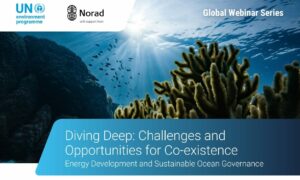
Virtual
Sustainable Ocean Governance and the Energy Sector: Legal and Policy Developments | Global Webinar Series 2023
10 Oct 2023 13:00 – 15:00
Online
UNEP, Norad

Virtual
ECCP: October Monthly Meeting
10 Oct 2023 14:00 – 15:00
Online | Zoom
Geneva Peacebuilding Platform
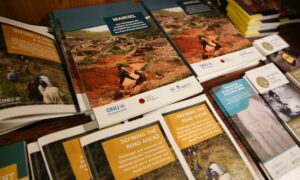
Virtual
Catalyzing Project Impact and Visibility Through Knowledge-Driven Capacity-Building | Minamata COP-5 Online Event
10 Oct 2023 14:45 – 15:45
Online | Webex
Minamata Convention on Mercury, GEN

Conference
Leaders Forum Geneva 2023 | Global goals for nature: tracking progress, financing success
11 – 13 Oct 2023
CICG & Online
IUCN
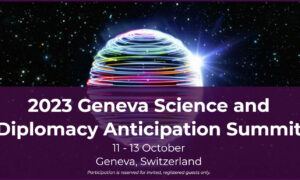
Conference
2023 Geneva Science and Diplomacy Anticipation Summit
11 – 13 Oct 2023
CERN Science Gateway
GESDA

Virtual
Advancing a Rights-based Approach to Addressing Mercury Contamination | Minamata COP-5 Online Event
11 Oct 2023 16:30 – 17:30
Online | Webex
OHCHR, ILO, UNECE, UN EMG, UNEP, Special Procedures of the UN Human Rights Council, GEN

Conference
Second Trees’ International Forum | Trees, Children, Forests: a Hope for Humanity
12 – 15 Oct 2023
Plainpalais Communal Hall
City of Geneva, Republic and State of Geneva
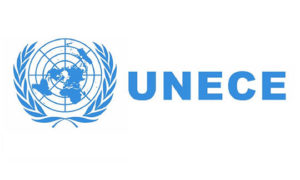
Body Meeting
Technical Implementation Body (5th session)
12 – 13 Oct 2023
Palais des Nations | Room VII
Aarhus Convention

Conference
Perspectives on Solar Radiation Modification Governance
12 Oct 2023 10:00 – 12:00
International Environment House 2 & Online | Webex
GEN, Switzerland
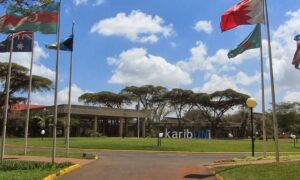
Conference
Briefing on the 3rd Session of the Intergovernmental Negotiating Committee to Develop an International Legally Binding Instrument on Plastic Pollution (Plastic Pollution INC-3)
12 Oct 2023 14:00 – 15:30
International Environment House II & Online | Webex
GEN

Conference
Key outcomes of the 3rd Forum of Mayors & Building Bridges 2023
12 Oct 2023 14:00 – 15:00
Online | Zoom
Global Cities Hub - Geneva, Building Bridges, Switzerland, UN-Habitat


Virtual
ITU Webinar | Disaster Risk Reduction in the Digital Transformation Age
13 Oct 2023 14:00 – 15:00
Online | Zoom
ITU
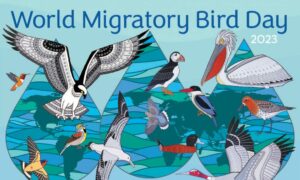


Jobs
See all
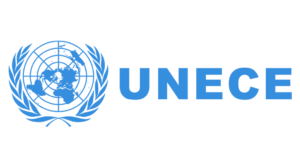
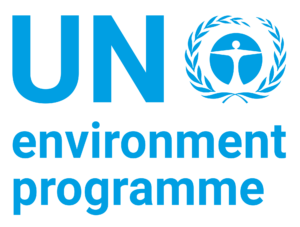
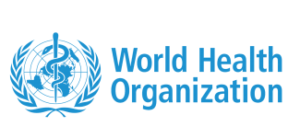
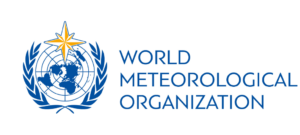
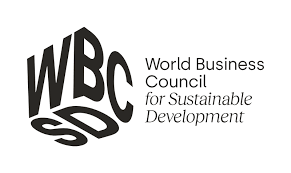




Professional
Senior Officer, Financial Planning & Analysis (FP&A)
15 Oct 2023
Gold Standard Foundation



